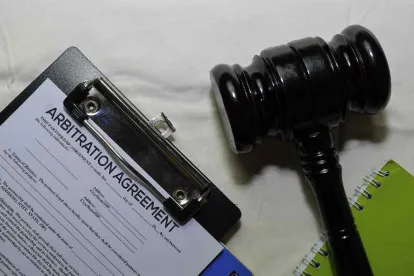Many employers are aware that they could waive the ability to enforce an arbitration agreement if they delay moving to compel arbitration until after they have engaged in significant litigation activities in court, such as filing a motion to dismiss or serving discovery requests. However, in Hernandez v. Universal Protection Services, a Massachusetts Superior Court judge found that an employer waived its right to compel arbitration based on its actions before an employee filed suit in court. As Hernandez is novel and significant, employers may want to consider adopting practices to remind employees of their arbitration agreements when it appears that litigation is likely.
Background
In September 2018, Universal hired Hernandez. As a condition of her employment, she signed an arbitration agreement requiring her to arbitrate all claims against Universal, including those for discrimination or harassment.
According to Hernandez’s complaint, in March 2020, her supervisor sexually harassed her. She reported the alleged harassment to the local police department, who, in turn, told Universal about it. Shortly after Universal learned of the Hernandez’s allegations, it terminated her supervisor’s employment.
Nonetheless, Hernandez filed a complaint with the Massachusetts Commission Against Discrimination (MCAD) against Universal and her former supervisor alleging that her former supervisor sexually harassed her at work. Around the same time, she also requested that Universal provide her with a copy of her personnel record under Massachusetts’ personnel-record law (M.G.L. c. 149, § 52C). . Universal gave Hernandez a copy of her personnel record, but it did not include the arbitration agreement she had signed.
After Universal responded to Hernandez’s MCAD complaint, she removed the case to the Massachusetts Superior Court. Promptly after Hernandez served Universal with a copy of her court complaint, Universal moved to dismiss or compel arbitration based on the agreement Hernandez had signed in 2018. Hernandez opposed that motion, arguing Universal had waived its right to compel arbitration.
Decision
The court agreed with Hernandez and found that Universal had waived its right to enforce the arbitration agreement for three reasons. First, although M.G.L. c. 149, § 52C requires employers to include “any waiver signed by the employee” in an employee’s personnel record, Universal did not provide Hernandez with a copy of her arbitration agreement (which waived her right to file her claims in court) when it responded to her request for her personnel record. Second, the court found that Universal had “failed to disclose the existence of or its intent to enforce an arbitration agreement” after it learned of Hernandez’s allegations, during the MCAD proceedings, or at any other time before the employee filed a complaint in Superior Court. Finally, in the court’s view, the employee ostensibly suffered prejudice by removing her case from the MCAD to Superior Court, which was “irreversible” and done “at her own cost.” Accordingly, the court denied Universal’s motion to dismiss or compel arbitration.
Takeaways for Employers
While Massachusetts courts have long recognized that an employer can waive its ability to enforce an arbitration agreement, Hernandez is a novel decision. Typically, courts find a waiver based on an employer’s actions in court, such as taking actions inconsistent with an intent to arbitrate, failing to move to compel arbitration promptly after service of process, invoking the judicial machinery, or taking other actions that have prejudiced the employee. In stark contrast to these cases, Hernandez found a waiver based on the employer’s actions before the employee filed her court complaint.
As a trial court decision, Hernandez is not binding precedent in Massachusetts, and other courts may disagree with its reasoning. However, employers can take a few steps to avoid a potential waiver based on Hernandez:
-
Exercise diligence when searching for and assembling documents in response to an employee’s personnel-record request to avoid omitting arbitration agreements.
-
Remind employees of their obligation to arbitrate claims in response to threats of litigation (such as a formal demand letter).
-
Refer to arbitration agreements in initial submissions to state and federal agencies (such as the U.S. Equal Employment Opportunity Commission and MCAD) to put employees on notice of the applicability of the agreement to the dispute if they remove their claims to court.
Taking these steps is unlikely to impose significant burden on most employers and may help ensure that employers are able to compel employees to abide by the agreements they signed.




 />i
/>i

